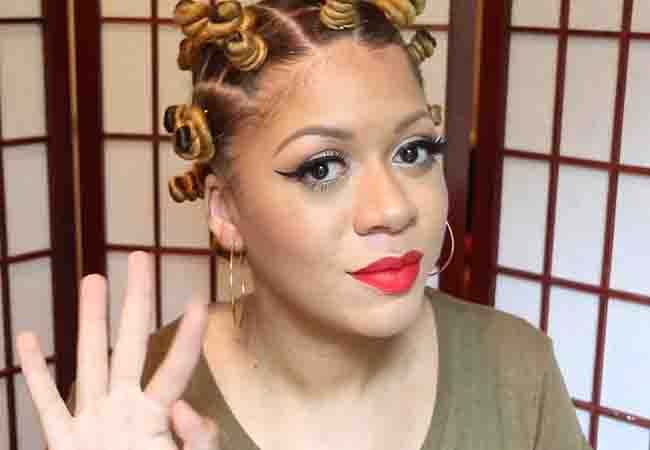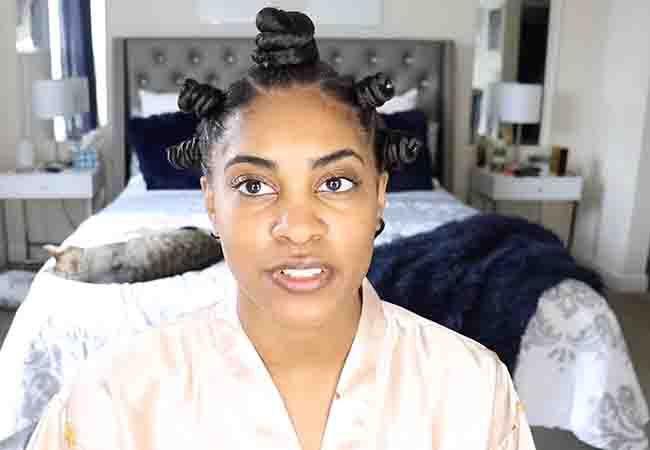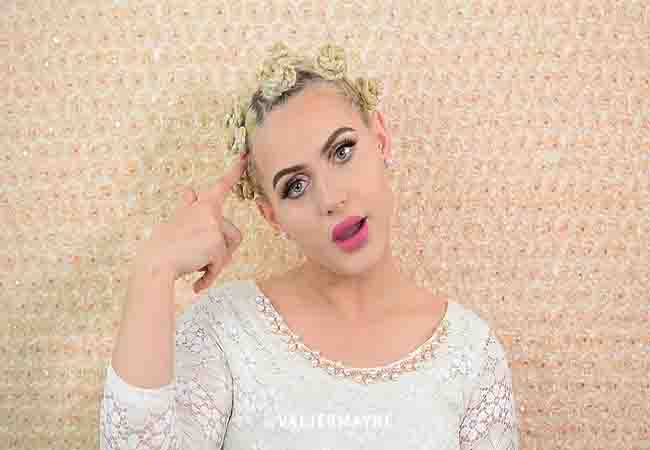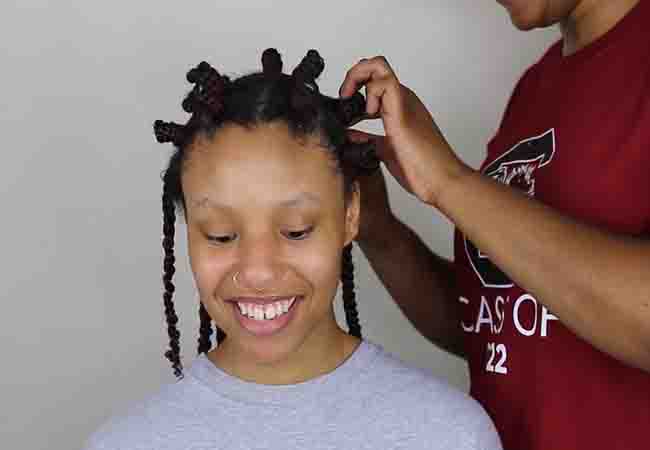Bantu Knot is more than just a hairstyle to Africans; it represents one’s identity, self-love, and pro-blackness. However, with the rising popularity of this hairstyle worldwide, many women are opting for it. But can anyone wear Bantu Knots?
Yes, anyone can wear them, but there are a few things you need to know first. As a non-African, ensure you educate yourself about the history of these braids before putting them on.
You may also wonder if it’s offensive to wear Knots, when is the right time to wear them, and why this hairstyle is getting more popular day-by-day. Read on below to get your answers.
Are Bantu Knots Offensive?
Bantu knots are a representative hairstyle of the Zulu tribe. Hence, there is controversy over who can and who can’t wear this hairstyle. Many people feel that non-African people shouldn’t wear Bantu Knots; consequently, many white celebrities have faced backlash for wearing it.
For example, Khloé Kardashian and Adele were accused of cultural appropriation for wearing Bantu knots.

As a non-African, if you’re considering wearing this hairstyle, you must acknowledge and appreciate the culture and history behind Bantu Knots. Otherwise, it’ll consider cultural appropriation.
This is because when people adopt a hairstyle without knowing its origin, they create a new trend by giving it a new name, which can often erase the actual origin. A similar controversial incident happened in 2016.
In January 2016, a fashion show named Pre-Fall 2016 was held at Valentino and featured in Lookbook magazine. The famous American fashion designer, Marc Jacobs, sent white models down the runway with Bantu Knots.
However, a British hairstylist, Guido Palau, came up with the idea of models’ hairstyles and they gave Bantu Knots a new name “Twisted Mini Bun.” This new name adds more fume to the controversy. Unfortunately, they gave no credit to blacks for their traditional style.
Can African Americans Wear Them?

Yes, African Americans can wear Bantu Knots without hesitation. In fact, by wearing this hairstyle, they’re actually showing respect and connecting to their roots more deeply.
They can put on this hairstyle as self-love and a symbol of pride for their original culture and roots. An African American writer expressed his attachment to Bantu Knots in the following line:
“I like Bantu Knots a lot. Whenever I wear this hairstyle, it gives me a feeling of strength. I remember my mother trying to make me wear Bantu Knots in my childhood days, but I always refused to wear them thinking that it would look awkward on me. As I grew up, I realized that Bantu Knots actually suit me and make me prettier. Later it turned out that I represented all #blackgirlmagic beauty, and no one could stop me.”
Can White Women Wear Bantu Knots?

This hairstyle is quite popular worldwide as a protective style. People with short or long hair and curly or straight hair (from 4C to straight) can wear Bantu Knots. This means anyone can wear them, regardless of hair length, texture, and culture.
A different culture adopting this hairstyle was never a problem but giving it a new name and making it a new trend was.
As a white woman, it’s totally up to you whether you want to wear this style. But you must know about the history of Bantu Knots before you decide to put them on.
However, it’s necessary to know that you can’t create Bantu Knots with flat braids.
When To Wear Bantu Knots?

Bantu Knot is an eye-catching and easy-to-wear hairstyle. This hairstyle is suitable to wear throughout the year.
In summer, you can keep your hair off your shoulders by wearing Bantu Knots. Plus, it’ll not interfere with the airflow in your scalp.
On the other hand, natural hair tends to break or damage in winter due to the friction of the hood or scarf. But you can easily prevent friction by wearing this hairstyle.
Why Do People Love To Wear Them?
To understand why people prefer Bantu Knots, let’s look into what benefits they offer:
- Protects your hair from potential environmental damage.
- Keep your hair end safe from breakage.
- Add natural volume and curl your hair.
- Can be done in any length and texture of hair.
- Low maintenance and let your hair grow in a less manipulated environment.
Verdict
So the answer to your question, can anyone wear Bantu Knots, is yes but with some conditions. As a non-African, you need to know about this hairstyle’s cultural significance and history to show respect to the black culture.
Besides learning, you must accept and show respect for their culture. This way, your adoption of Bantu Knots won’t be considered cultural appropriation.

